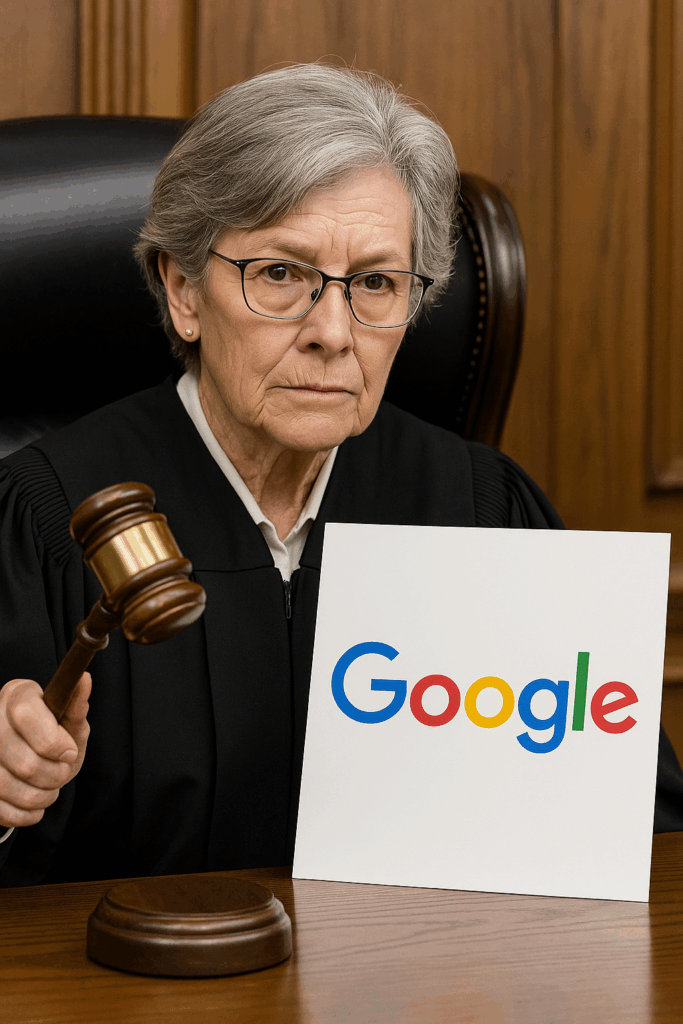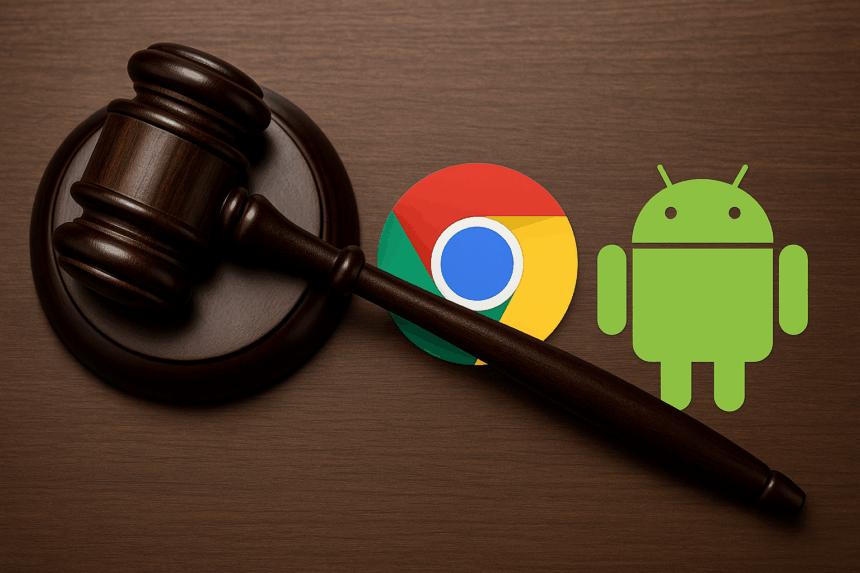A U.S. federal judge ruled that Google does not have to sell off its Chrome browser or Android operating system. This hands the tech giant a decisive win in a historic antitrust case, described by many as the “Google antitrust ruling.” While the company avoids the most extreme penalties, it faces new restrictions designed to curb its dominance in online search.
What’s Happening & Why This Matters
The ruling comes after a multi-year trial in which the U.S. Department of Justice (DOJ) accused Google of running an illegal online search monopoly. Judge Amit Mehta acknowledged Google’s monopolistic practices but stopped short of ordering a breakup. The Google antitrust ruling denotes the importance of fostering innovation competition.

Instead, Google must open parts of its closely guarded search data to rivals like DuckDuckGo and Microsoft Bing. This is to foster competition. The company is also barred from exclusive contracts. The contracts previously required device manufacturers to pre-load Google Search, Chrome, Gemini AI, and the Google Assistant to access the Google Play Store.
Mehta explained the challenge of ruling in a rapidly shifting tech industry driven by AI breakthroughs. “Unlike a typical case based on historic facts, here the court is asked to gaze into a crystal ball and look to the future,” he wrote in the context of the Google antitrust ruling. This refers to the influence of generative AI products like ChatGPT, Gemini, DeepSeek, and Perplexity.
The DOJ initially pushed for tougher remedies, including forcing Google to divest Chrome entirely. But Mehta rejected that step. He concluded that breaking up Chrome is “messy and highly risky.” It potentially harms consumers by leaving the browser “a shadow of its current form.”
Search Data Access and Privacy Concerns
The decision forces Google to share certain data from its vast archive of search queries. This “secret sauce” powers Google’s search dominance and, until now, was tightly protected. While this move could help competitors improve their products, Google warns it poses privacy risks for billions of users.
“The court has imposed limits on how we distribute Google services and will require us to share search data with rivals. We have concerns about how these requirements will impact our users and their privacy,” Google stated in response to the ruling.
The DOJ framed the decision as progress. Assistant Attorney General Abigail Slater emphasized the need to prevent Google from using the same monopolistic tactics. These tactics were used to dominate emerging GenAI technologies as well as search.
Impact on Tech Rivals and Partners
The ruling also affects companies like Apple, which earns more than $20 billion annually from Google through default search deals on iPhones and Safari. Apple had warned that banning these agreements could hurt innovation funding. It could also destabilize the market.
While exclusive contracts are now prohibited, Google may still pay partners to distribute its services. This leaves room for continued collaboration. Analysts believe this could pave the way for deeper AI partnerships. Such partnerships may include integrating Gemini AI into Apple’s Siri voice assistant. The Google antitrust ruling hints at possible changes in such collaborations.
“This ruling is a win for both Apple and Google,” said Dan Ives of Wedbush Securities, noting that it sets the stage for expanded AI-related partnerships.
Competitors like Firefox and smaller search providers fear losing Google’s payments. This could threaten their survival, as those funds often support ongoing operations.
AI Competition Raises Stakes
The trial spotlighted how generative AI tools like ChatGPT and Perplexity are transforming how people access information. Mehta’s ruling attempts to ensure Google’s dominance in search does not carry over into the GenAI space. In this space, new competitors are emerging.
Robert Siegel of Stanford University noted, “This is all going to be about who delivers the best solution for how people interact with technology and AI going forward.”
Despite the restrictions, Google retains powerful advantages. Its massive data sets, global reach, and ongoing partnerships give it a strong position as AI-driven services reshape the market.
TF Summary: What’s Next
The DOJ achieved a partial victory by limiting Google’s ability to enforce exclusive deals and requiring data sharing. However, it fell short of dismantling Google’s core businesses. The Google antitrust ruling is a seminal moment for regulation in the tech industry.
Google’s competitors now have a unique opportunity to innovate and challenge its search dominance. At the same time, Google must navigate stricter rules while preparing for its next legal battle. This battle concerns its digital advertising empire, which faces a separate DOJ case.
The decision signals that regulators are serious about fostering competition in both search and AI. However, they remain cautious about imposing drastic measures that could disrupt tech ecosystems.
— Text-to-Speech (TTS) provided by gspeech


